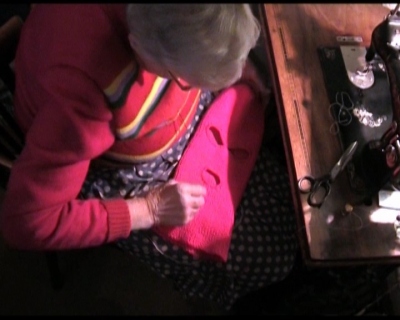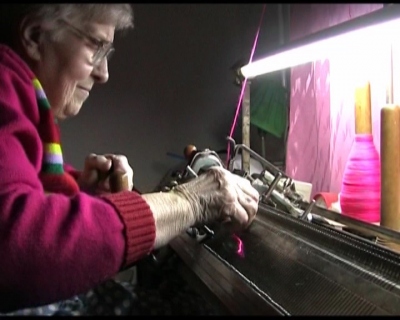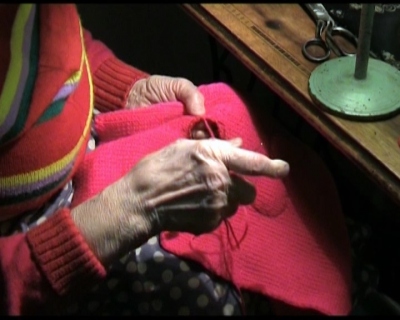Karol Radziszewski
Fag Fighters: Prologue
In his diploma work, Radziszewski explored the interpenetration of public and private space, which later became an important theme in his work. A few years after graduation, Radziszewski came out and organized the Pedały exhibition of mainly paintings in his flat. The gay theme also appears in his films, including the early Plus/Minus – a documentary showing the artists as he awaits the results of an HIV test. Themes from his private life were also presented at his 2007 solo exhibition, Zawsze chciałem [I’ve Always Wanted to] at Ujazdowski Castle Centre for Contemporary Art.
One of the works presented there was the film Fag Fighters: Prologue, a documentary showing the artist’s grandmother knitting a pink balaclava for her grandson. It became the first in a series of films documenting the activities of a violent, fictional gay militia, whose hallmark was pink balaclavas. Radziszewski’s dream was to create a gang that would take revenge on people who are aggressive towards homosexuals. An old lady knits the item with great commitment, forgetting about the entire world. She is convinced that it is supposed to protect her grandson against the cold. As the artist explained, Grandma was not privy to his motives. Radziszewski’s goal in this project was to show the ambiguity of stereotypes about homosexuals, who are treated as effeminate and subtle on the one hand, and aggressive and dangerous on the other. The film is accompanied by a colour photograph of Radziszewski in a pink balaclava, sitting on the couch with his grandmother, the modest author of the item.
In 2004, Karol Radziszewski graduated from painting at the Academy of Fine Arts in Warsaw. He works with film, photography, painting, creates installations and interdisciplinary projects; received scholarships from the Minister of Culture, and awards, including Samsung Art Master, Polityka’s Paszport and Wdecha. Radziszewski is involved in the activities of the LGBT movement, is the publisher and editor-in-chief of “DIK Fagazine”, as well as the founder of the Queer Archives Institut, an organization which aims to collect, research and share queer archives, in particular those focusing on Central and Eastern Europe.


